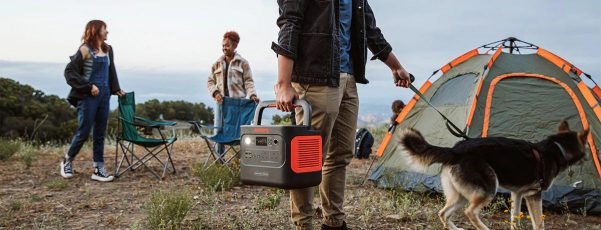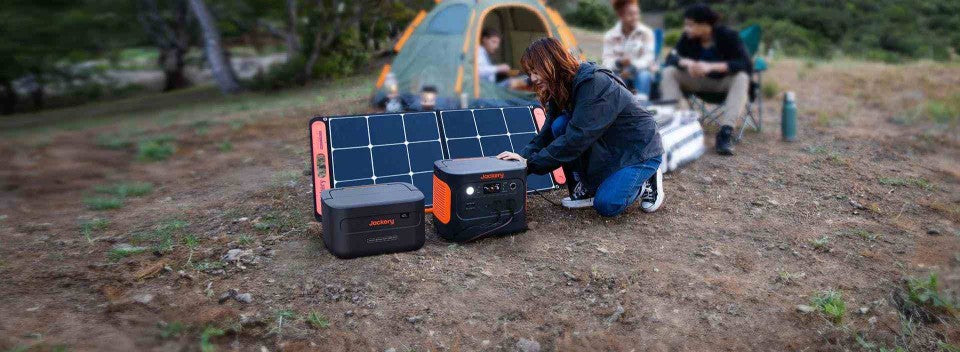If you own a caravan in the UK, understanding where and how long you can park lawfully is crucial to avoiding fines, conflicts, and insurance concerns. The requirements for caravans on public highways and private driveways vary based on the type, location, and local council legislation.
This thorough guide covers all you need to know about legal parking periods, the distinction between touring and static caravans, safety requirements for roadside parking, and how to avoid enforcement penalties. Whether you're making a quick break or keeping your RV at home, understanding UK caravan parking laws will help you stay legal and protect your investment.
|
Key Takeaways: |
|
- You can legally park a touring caravan on a UK road only if it remains attached to the tow vehicle. - Static caravans are not permitted on public roads due to their size and immobility. - There is no national time limit for roadside caravan parking, but extended stays may lead to complaints or enforcement action. - Storing a caravan on a driveway is generally allowed, but some property deeds may prohibit it. - It is essential to obtain a reliable power source when living in a caravan. We recommend Jackery Solar Generator 1000 v2 to power your caravan appliances off the grid. |
Can You Park a Caravan on the Road in the UK?
Yes, you can park a caravan on the road in the UK under some circumstances, but there are legal and practical criteria to adhere to. When parked on a public road, the caravan must be linked to a motor vehicle. This is a legal necessity to keep it from being considered abandoned or disruptive. It is illegal to unhitch your caravan and leave it on the road.
It is also critical that the caravan does not create an obstruction or endanger other road users. This includes ensuring that it does not obstruct driveways and pathways or impair visibility at intersections. Parking on a bend or near a corner might be particularly challenging.
If you park your caravan on the road, you must also keep it illuminated at night. This involves using side and rear lights that are visible to passing vehicles to prevent accidents. These lighting specifications are part of the Road Vehicles Lighting Regulations.
Another important factor to consider is whether local councils permit caravan parking in specific residential zones. Some councils may issue warnings or fines if a caravan is regarded as a nuisance or stays for an extended period of time. For example, authorities such as Stevenage and Darlington have clear public advice opposing long-term on-street parking of trailers, especially if it causes complaints or traffic concerns.
Furthermore, your caravan must be insured and display a valid number plate that corresponds to the towing vehicle. If these conditions are not followed, your insurance may be rendered worthless in the case of damage, theft, or an accident while parked on the road.
To summarise, parking a caravan on the road is possible, but only if you follow national regulations and local council guidelines. Failure to do so may result in enforcement action or liability issues.

Can a Caravan Be Stored on a Driveway?
Storing a caravan on a driveway is normally permitted in the UK, but there are several considerations to consider, including property deeds, council restrictions, and potential neighbour disputes. While it is not necessarily illegal, restrictions may apply depending on your location or housing arrangement.
Is It Legal to Store a Caravan on a Residential Driveway?
There is no general UK rule that bans you from storing a caravan on your own driveway. However, some properties, particularly those in newer housing estates, may be subject to restrictive covenants in their title deeds. These restrictions may prohibit the parking of caravans, trailers, or motorhomes on driveways or in front gardens.
In such circumstances, breaking these covenants may result in legal action by property developers or management organisations. Before storing a caravan on your property, ensure you check your deeds or leasehold terms.
Do You Need Planning Permission to Store a Caravan on Your Driveway?
In general, you do not require planning permission to store a caravan on your own property as long as it is not utilised as a separate house. The caravan must be utilised as an extension of the primary residence (for example, for storage or temporary lodging). If it is intended to be used as a permanent residence, planning permission may be required.
Can Neighbours Complain About a Caravan on a Driveway?
Yes, neighbours might object if the caravan obstructs views, light, or access. Councils may investigate on grounds of annoyance or visual effect, particularly if the caravan is large or unattractive. Some local governments may act if the caravan degrades the appearance of the community or causes traffic congestion.
What About Security and Insurance?
Even while parked in your own driveway, a motorhome can be a target for theft. You should use wheel locks, hitch locks, or security posts to secure your vehicle. Furthermore, many insurance companies demand you declare where you store your caravan, which can affect your price. Insurers may impose conditions or refuse coverage if the caravan is not stored safely.
Parking Regulations for Touring Caravans
Understanding the UK's parking requirements for touring caravans is critical for avoiding penalties, enforcement, and invalidated insurance. While certain basic concepts apply nationwide, other criteria are determined by local council policy, traffic safety laws, and the duration of the caravan's stay on site.
Can You Park a Touring Caravan on a Public Road?
Touring caravans can be parked on public roads, but only if they are hitched to a vehicle. This is a fundamental legal necessity for preventing obstruction and maintaining road safety. You must not leave a touring caravan disconnected and unattended on a public highway.
Lighting Requirements When Parked Overnight
If you need to park your caravan overnight, the Road Vehicles Lighting Regulations require that it be lit at night. This includes using back and side lights that stay on in the dark to alert other drivers. Failure to observe this guideline may result in a fine or being held accountable for an accident.
Restrictions Based on Parking Location
Caravans and trailers are subject to parking restrictions imposed by local authorities. This means that what is legal in one region could be illegal in another. Some councils forbid caravans from parking on specific streets or may only allow short-term parking.
Furthermore, parking in a risky location or causing an obstruction is a criminal violation, independent of local council regulations.
Is Long-Term Parking Allowed?
There is no legal time limit for how long you can park a motorhome on a public road, provided it does not cause a nuisance. If neighbours complain, municipalities have the authority to issue enforcement notices or arrange for the caravan to be removed. Councils such as Darlington and Stevenage make this clear in their rules, emphasising that caravans should not be kept in one location for extended periods of time, particularly in residential areas.
Insurance and Number Plate Requirements
When parking a touring caravan, even briefly, ensure that the number plate matches the towing vehicle. You must also notify your insurance company of the location of the caravan, especially if it is not stored in a secure facility. If you do not meet these requirements, your insurance policy may be invalid.

Parking Regulations for Static Caravans
Unlike touring caravans, static caravans are not intended for regular towing or relocation. Their size and intended usage necessitate unique legal concerns when parking or installing them on property, driveways, or roads. While static caravans are commonly found in holiday parks or on private land, they must adhere to strict rules when placed elsewhere.
Can You Park a Static Caravan on a Road?
You cannot legally park a static caravan on a public road. Their size and lack of roadworthiness make them unsuitable for street parking. Static caravans are too large to park securely on most residential streets and thus are not regarded as road-legal in the same way that touring caravans are. They are not intended to be moved regularly, and especially not for on-street parking.
Is Planning Permission Required for Static Caravans?
Yes, in most circumstances. Depending on how you intend to use the static caravan, you may require planning permission to put it in a garden or on private land. Using a static caravan as a separate dwelling almost always requires local government planning consent. Even if it's for temporary housing or office space, always consult with the local council first.
Can Static Caravans Be Kept on a Driveway?
Keeping a static motorhome on a residential driveway is not a typical practice and may be prohibited by local planning regulations or property covenants. Due to their massive size and permanent nature, they may be viewed as a form of development or a shift in land use. This differs from touring caravans, which are more conveniently stored at home.
Storage and Security Considerations
Since static caravans are rarely stored at home, they are often housed in licensed caravan parks or on private land designated for this purpose. These venues provide appropriate infrastructure, access, and security. Attempting to park a static caravan in a public or residential area without authorisation may result in complaints, enforcement action, or legal penalties. Here are some guides for caravan parks in the UK.

How Long Can You Park a Caravan on the Road in the UK?
Understanding the rules governing the length of time a caravan can stay on a public road is crucial for avoiding penalties or disputes. While there is no national time limit, many laws and local council rules govern the maximum length of time a caravan can legally stay on the roadside.
Is There a Time Limit for Parking a Caravan on the Road?
There is no legal restriction on how long a caravan can be parked on a public road as long as it is tied to a towing vehicle and does not pose a safety risk. However, leaving a trailer on the road for an extended period of time may result in complaints from neighbours or attention from local authorities.
What Happens If a Caravan Is Parked for Too Long?
If the caravan remains parked for an extended period of time, the local municipality may take action. This includes serving a notice to remove the caravan if it is deemed a nuisance or obstacle. Councils such as Darlington and Stevenage strongly advise against leaving trailers on residential streets for extended periods, particularly if they obstruct vistas or occupy valuable parking spaces.
A caravan that has been left in one location for an extended period of time may be considered abandoned, especially if it appears unattended or unconnected. In such circumstances, authorities may remove the caravan or impose fines.
Will Insurance Be Affected by Long-Term Parking?
Long-term parking of a caravan on the road may have an impact on your insurance. Many insurers require that the claimed storage location be accurate. If you park your caravan in a public place for an extended period of time without alerting your insurer, your coverage may become void.
How to Avoid Penalties for Extended Roadside Parking?
To prevent penalties or enforcement action for extended roadside parking, keep the caravan tied to a towing vehicle and never leave it unattended. Avoid parking near junctions, driveways, or bends, as this may produce an obstruction or pose a road safety concern.
Do not leave the caravan in the same location for a lengthy period of time; this may result in complaints or be regarded as abandonment. Check for any local council signage or rules that limit long-term parking. To avoid problems with local authorities or invalidating your insurance, keep your caravan on a private driveway or at a secure storage facility.
Essential Safety Tips for Parking Your Caravan on the Road
When parking a caravan on a public road in the UK, safety should be the number one priority. Failure to take simple safety procedures may result in accidents, fines, or even voided insurance. The following guidelines are essential for keeping your caravan safe and compliant while parked on the street.

Tip 1: Always Keep the Caravan Attached to the Tow Vehicle
When parking a touring caravan on a public road, it must be tied to a vehicle. It is illegal and perhaps dangerous to leave it unhitched. When disconnected, the caravan might be a hindrance or possibly a hazard, especially on narrow or residential streets.
Tip 2: Use Proper Lighting at Night
Caravans parked on public roadways overnight must comply with the Road Vehicles Lighting Regulations. This means that back and side lights must remain illuminated during the night. Noncompliance with these lighting requirements raises the risk of accidents and may result in penalties or enforcement action.
Tip 3: Avoid Parking in Risky Locations
Do not park a caravan in an area where it will pose an obstruction or a road safety hazard. Avoid areas near bends, crossroads, or where it might block a driveway or limit pedestrian access. Always consider visibility and how your parked caravan may affect other traffic and pedestrians.
Tip 4: Display the Correct Number Plate
The caravan must have a number plate that matches the one on the towing vehicle. This is a legal obligation, and failure to comply may result in penalties. It also aids in identifying any incidents that occur when the caravan is parked.
Tip 5: Improve Security Measures
Even when legally parked, caravans are vulnerable to theft. Use security equipment, such as wheel clamps and hitch locks. Some owners also place security posts or park in well-lit, visible areas to prevent burglars. These actions can also help meet insurance requirements and lower costs.
Tip 6: Monitor Local Restrictions
Local governments may impose restrictions on caravan parking in certain areas. Before leaving your caravan, enquire with the local authorities about any unique rules. Some councils have harsher restrictions, especially in regions with limited space or a high volume of complaints.
Jackery Solar Generators for Caravans
The Jackery Solar Generator, comprising a Jackery Portable Power Station and Jackery Solar Panels, is an excellent choice for caravan owners in the UK, offering a compelling blend of independence, convenience, and environmental responsibility.
The UK has a vast network of beautiful rural campsites, many of which offer non-electric pitches. A Jackery Solar Generator allows you to stay at these quieter, often more scenic locations without sacrificing comfort. You're not tied to expensive electrical hook-ups.
While true "wild camping" for caravans/motorhomes is generally not permitted in most of the UK (unlike parts of Scotland where it's tolerated in certain areas and for specific vehicle types if "Leave No Trace" is strictly followed), a solar generator still grants you the freedom to explore remote areas and temporarily park in approved spots without needing external power.
It provides you with the flexibility to stop for lunch or an overnight stay (where permitted) without worrying about power. Here, we recommend Jackery Solar Generator 1000 v2.
Jackery Solar Generator 1000 v2
The Jackery Solar Generator 1000 v2, comprising the Jackery Explorer 1000 v2 portable power station and either the Jackery SolarSaga 100W or 200W solar panels, is a strong contender for caravan owners in the UK, offering a compelling blend of power, portability, and eco-friendliness that addresses typical UK caravanning needs.

Jackery Explorer 1000 v2 Portable Power Station
1070Wh LiFePO4 Battery: This capacity is a sweet spot for most UK caravan trips. It's large enough to power essential items like lights, phone and tablet chargers, laptops, a small portable TV, and even a low-wattage kettle or coffee maker for a weekend or several days off-grid. For typical UK use, where you might move between sites or have occasional grid access, this is often sufficient without being excessively heavy or bulky.
1500W AC Output (3000W Surge): This output allows you to run a good range of caravan appliances. Many standard caravan appliances, such as a small fridge, fan, or electric kettles, will fall within this power budget. The 3000W surge capability is useful for the initial power draw of some appliances.
Compact & Lightweight (for Its Capacity): At around 23.8 lbs (10.8 kg), the Explorer 1000 v2 is remarkably portable for its power output. This is a significant advantage for caravans, where space and weight are often at a premium. You can easily move it around the caravan, take it outside to charge devices, or store it without occupying too much precious space.
Silent & Fume-Free: UK campsites, especially those in scenic areas or National Parks, have a strong emphasis on peace and quiet. Petrol generators are widely prohibited or heavily restricted due to noise and exhaust fumes. The Jackery Solar Generator 1000 v2 operates silently and produces zero emissions, making it perfectly respectful of your neighbours and the environment. This means you can enjoy power without disturbing the tranquillity of your surroundings.
Fast AC Charging: The impressive 1-hour "Emergency Super Charging" (or 1.7 hours for optimised battery health) via AC means that if you stop at a site with a hook-up or have the chance to plug into a domestic socket, you can quickly top up the power station before heading back off-grid. This flexibility is highly valuable in the UK, where you might alternate between powered and non-powered pitches.
Jackery SolarSaga 100W or 200W Solar Panel
Jackery SolarSaga 100W Solar Panel harnesses solar energy for continuous charging! Boasting a conversion efficiency of up to 25%, it is optimally designed for outdoor use and unforeseen power interruptions. The solar panel weighs about 8 lbs, is lightweight, foldable, and features an easy-carry handle, enhancing its portability.
The Jackery SolarSaga 200W Solar Panel boasts a solar conversion efficiency of up to 25%, facilitating rapid adoption of eco-friendly energy. The ETFE-laminated case prolongs its durability while the suggested angle maximises solar absorption, rendering it an ideal power source for outdoor excursions and home backup. It is portable, collapsible, and may be immediately connected to a power station for an optimal solar power system.
FAQs
The following are the frequently asked questions about parking a caravan on the road in the UK.
1. Can you park a caravan on a residential street in the UK?
Yes, you can park a caravan on a residential street in the UK as long as it does not hinder traffic or break local restrictions. The caravan should be parked carefully, with the nearside facing the pavement and the rear lights visible to approaching vehicles at night. However, local councils may have special laws in place, and certain neighbourhoods may have restrictive covenants prohibiting such parking. It is recommended that you verify with your local administration to ensure the caravan does not cause any trouble to other residents.
2. How long can you leave a caravan on the road?
There is no national time limit for parking a caravan on a public road in the UK. However, leaving it in the same position for an extended period of time may result in complaints or enforcement action from local councils. It is best to avoid long periods of parking and to verify with your local government for any unique laws.
3. Can I store my caravan on a public road?
It is generally not recommended to store a caravan on a public road. While short-term parking is permitted, long-term storage might be considered a nuisance or hindrance, resulting in penalties or removal by local authorities. It's recommended to keep your caravan on private property or in designated storage areas.
4. How to complain about a neighbour's caravan?
If a neighbour's caravan is causing problems, such as obstructing traffic or breaching local restrictions, it is best to first resolve the issue calmly with them. If the situation persists, please contact your local council to report it. The authorities may also become involved if the caravan poses a safety risk or causes considerable obstruction.
Final Thoughts
Parking a caravan in the UK entails more than simply finding space; it also necessitates careful consideration of legal rules, local limits, and safety regulations. While touring caravans can park on roadways under certain conditions, static caravans are frequently restricted to specific locations.
Caravan storage on your driveway is usually permissible; however, it may be restricted by property covenants or planning laws. Taking precautions, such as using proper lighting, locking the caravan, and monitoring parking times, will help avoid complications.




























































